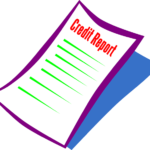How To Legally Improve Your Credit Score
There are many misconceptions about credit scores out there. There are customers who believe that they don’t have a credit score and many customers who think that their credit scores just don’t really matter. These sorts of misconceptions can hurt your chances at some jobs, at good interest rates, and even your chances of getting some apartments.

Before you start boosting your credit score, you need to know the basics. You need to know what a credit score is, how it is developed, and why it is important to you in your everyday life. Lenders certainly know what sort of information they can get from a credit score, but knowing this information yourself can help you better see how your everyday financial decisions impact the financial picture lenders get of you through your credit score. A few simple tips are all you need to know to understand the basic principles:
1: Understand where credit scores come from.
If you are going to improve your credit score, then logic has it that you must understand what your credit score is and how it works. Without this information, you won’t be able to very effectively improve your score because you won’t understand how the things you do in daily life affect your score. If you don’t understand how your credit score works, you will also be at the mercy of any company that tries to tell you how you can improve your score – on their terms and at their price.
In general, your credit score is a number that lets lenders know how much of a credit risk you are. The credit score is a number, usually between 300 and 850, that lets lenders know how well you are paying off your debts and how much of a credit risk you are. In general, the higher your credit score, the better credit risk you make and the more likely you are to be given credit at great rates. Scores in the low 600s and below will often give you trouble in finding credit, while scores of 720 and above will generally give you the best interest rates out there.
However, credit scores are a lot like GPAs or SAT scores from college days – while they give others a quick snapshot of how you are doing, they are interpreted by people in different ways. Some lenders put more emphasis on credit scores than others. Some lenders will work with you if you have credit scores in the 600s, while others offer their best rates only to those creditors with very high scores indeed. Some lenders will look at your entire credit report while others will accept or reject your loan application based solely on your credit score.
The credit score is based on your credit report, which contains a history of your past debts and repayments. Credit bureaus use computers and mathematical calculations to arrive at a credit score from the information contained in your credit report. Each credit bureau uses different methods to do this (which is why you will have different scores with different companies) but most credit bureaus use the FICO system.
FICO is an acronym for the credit score calculating software offered by Fair Isaac Corporation company. This is by far the most used software since the Fair Isaac Corporation developed the credit score model used by many in the financial industry and is still considered one of the leaders in the field. In fact, credit scores are sometimes called FICO scores or FICO ratings, although it is important to understand that your score may be tabulated using different software. One other thing you may want to understand about the software and mathematics that goes into your credit score is the fact that the math used by the software is based on research and comparative mathematics. This is an important and simple concept that can help you understand how to boost your credit score. In simple terms, what this means is that your credit score is in a way calculated on the same principles as your insurance premiums. Your insurance company likely asks you questions about your health, your lifestyle choices (such as whether you are a smoker) because these bits of information can tell the insurance company how much of a risk you are and how likely you are to make large claims later on. This is based on research. Studies have shown, for example, that smokers tend to be more prone to serious illnesses and so require more medical attention. If you are a smoker, you may face higher insurance premiums because of this. Similarly, credit bureaus and lenders often look at general patterns. Since people with too many debts tend not to have great rates of repayment, your credit score may suffer if you have too many debts report.
2: Keep the contact information for credit bureaus handy.
The three major credit bureaus are important to contact if you are going to be repairing your credit score. The major three credit agencies can help you by sending you your credit report. If you find an error on your credit report, these are also the companies you must contact in order to correct the problem. You can easily contact these organizations by mail, telephone, or through the Internet:
You may want to note this information wherever most of your financial information is kept so that you can easily contact the bureaus whenever you need to. Your local yellow pages should also have the contact information of these credit agencies as well.
3: Develop an action plan for dealing with your credit score.
Once you have your credit report and your credit score, you will be able to tell where you stand and where many of your problems lie. If you have a poor score, try to see in your credit report what could be causing the problem:
- Do you have too much debt?
- Too many unpaid bills?
- Have you recently faced a major financial upset such as a bankruptcy?
- Have you simply not had credit long enough to establish good credit?
- Have you defaulted on a loan, failed to pay taxes, or recently been reported to a collection agency?
The problems that contribute to your credit problems should dictate how you decide to boost your credit score. When you seek professional credit counseling or credit help, counselors will generally work with you to help you develop a personalized strategy that expressly addresses your credit problems and financial history. Now, with this article, you can develop a similar strategy on your own – in your own time and at your own cost. When developing your action plan, know where most of your credit score is coming from:
a) Your credit history (accounts for more than a third of your credit score in some cases). Whether or not you have been a good credit risk in the past is considered the best indicator of how you will react to debt in the future. For this reason, late payment, loan defaults, unpaid taxes, bankruptcies, and other unmet debt responsibilities will count against you the most. You can’t do much about your financial past now, but starting to pay your bills on time – starting today – can help boost your credit score in the future.
b) Your current debts (accounts for approximately a third of your credit score in some cases). If you have lots of current debt, it may indicate that you are stretching yourself financially thin and so will have trouble paying back debts in the future. If you have a lot of money owing right now – and especially if you have borrowed a great deal recently – this fact will bring down your credit score. You can boost your credit score by paying down your debts as far as you can.
c) How long you have had credit (accounts for up to 15% of your credit score in some cases). If you have not had credit accounts for very long, you may not have enough of a history to let lenders know whether you make a good credit risk. Not having had credit for a long time can affect your credit score. You can counter this by keeping your accounts open rather than closing them off as you pay them off.
d) The types of credit you have (accounts for about one tenth of your credit score, in most cases). Lenders like to see a mix of financial responsibilities that you handle well. Having bills that you pay as well as one or two types of loans can actually improve your credit score. Having at least one credit card that you manage well can also help your credit score.
As you can see, it is possible to only estimate how much a specific area of your credit report affects your credit score. Nevertheless, keeping these five areas in mind and making sure that each is addressed in your personalized plan will go a long way in making sure that your personalized credit repair plan is comprehensive enough to boost your credit effectively.
4: Pay your bills on time.
One of the best ways to improve your credit score is simply to pay your bills on time. This is absurdly simple but it works very well, because nothing shows lenders that you take debts seriously as much as a history of paying promptly. Every lender wants to be paid in full and on time. If you pay all your bills on time then the odds are good that you will make the payments on a new debt on time, too, and that is certainly something every lender wants to see. Experts think that up to 35% of your credit score is based on your paying of bills on time, so this simple step is one of the easiest ways to boost your credit score. Paying your bills on time also ensures that you don’t get hit with late fees and other financial penalties that make paying your bills off harder. Paying your bills in a timely way makes it easier to keep making payments on time. Of course, if you have had problems making your payments on time in the past, your current credit score will reflect this. It will take a number of months of repaying your bills on time to improve your credit score again, but the effort will be well worth it when your credit risk rating rebounds!
5: Avoid excessive credit.
If you have many lines of credit or several huge debts, you make a worse credit risk because you are close to “overextending your credit.” This simply means that you may be taking on more credit than you can comfortably pay off. Even if you are making payments regularly now on existing bills, lenders know that you will have a harder time paying off your bills if your debt load grows too much. The higher your debts the greater your monthly debt payments and so the higher the risk that you will eventually be able to repay your debts. Plus, statistical studies have shown that those with high debt loads have the hardest time financially when faced with a crisis such as a divorce, unemployment, or sudden illness. Lenders (and credit bureaus who calculate your credit score) know that the more debt you have the greater problems you will have in case you do run into a life crisis. In order to have a great credit score, avoid taking out excessive credit. You should stick to one or two credit cards and one or two other major debts (car loan, mortgage) in order to have the best credit rating. Do not apply for every new credit line or credit card “just in case.” Borrow only when you need it and make sure to make payments on your debts on time. You should also know that taking out lots of new credit accounts in a relatively short period of time will cause your credit score to nosedive because it will look as though you are being financially irresponsible.
6: Pay Down Your Debts.
If you have a lot of debt, your credit score will suffer. Paying down your debts to a minimum will help elevate your credit score. For example, if you have a $1000 limit on your credit card and you regularly carry a balance of $900, you will be a less attractive credit risk to lenders than someone who has the same credit card but carries a smaller balance of $100 or so. If you are serious about improving your credit score, then start with the largest debt you have and start paying it down so that you are using a less large percentage of your credit total. In general, try to make sure that you use no more than 50% of your credit. That means that if your credit card has a limit of $5000, make sure that you pay it down to at least $2500 and work at carrying no larger balance. If possible, reduce the debt even more. If you can pay off your credit card in full each month, that is even better. What counts here is what percentage of your total credit limit you are using – the lower the better.
7: Have a range of credit types.
The types of credit you have are a factor in calculating your credit score. In general, lenders like to see that you are able to handle a range of credit types well. Having some form of personal credit – such as credit cards – and some larger types of credit – such as a mortgage or auto loan – and paying them off regularly is better than having only one type of credit.
If you have a lower credit score that you would like, odds are that the score is caused by some small financial mistake or oversight you have made in the past. Not every person with bad credit has a low credit score caused by something they did, though. Sometimes, other people’s criminal activity can affect your credit score. There are a few tips that can keep you and your credit safe form online and financial predators.
8: Look out for identity theft.
Many people who are careful about paying bills on time and having minimal debts are shocked each year to find that they have low credit scores. In many cases, this happens as a result of identity theft. Identity theft is a type of crime in which people take your personal information and steal that information to pose as you in order to get access to your accounts or identity. For example, someone with your PIN numbers can remove small amounts of money from your bank account each month or someone can use your name and personal information to get credit cards in your name and use those credit cards with no intention of paying back the money. You are stuck with the large debts and the poor credit score.
To prevent identity theft, always check your account statements carefully each month. Report any suspicious activity or any charges you don’t recognize at once. Also check your credit report regularly and immediately investigate any new credit accounts you do not recognize – this is the best way of detecting and acting on identity theft. If you have been the victim of identity theft, report to the police at once and get a police statement. Send copies of this to your bank and credit bureaus. Better yet, get the credit bureaus to attach the report to your credit report, if you can. Close all your accounts and reopen new ones. You should not have to pay for someone else’s illegal activity.
9: Beware of debts and credit you don’t use.
It is easy today to apply for a store credit card that you forget all about in three years – but that account will remain on your credit report and affect your credit score as long as it is open. Having credit lines and credit cards you don’t need makes you seem like a worse credit risk because you run the risk of “overextending” your credit. Also, having lots of accounts you don’t use increases the odds that you will forget about an old account and stop making payments on it – resulting in a lowered credit score. Keep only your used accounts and make sure that all other accounts are closed. Having fewer accounts will make it easier for you to keep track of your debts and will increase the chances of you having a good credit score. However, realize that when you close an account, the record of the closed account remains on your credit report and can affect your credit score for a while. In fact, closing unused credit accounts may actually cause your credit score to drop in the short term, as you will have higher credit balances spread out over a smaller overall credit account base. For example, if your unused accounts amounted to $2000 and you owe $1000 on accounts that you have now (let’s say on two credit cards that total $2000) you have gone from using one fourth of your credit ($1000 owed on a possible $4000 you could have borrowed) to using one half of your credit (you owe $1000 from a possible $2000). This will actually cause your credit risk rating to drop. In the long term, though, not having extra temptation to charge and not having credit you don’t need can work for you.
- Be careful of inquiries on your credit report.
Every time that someone looks at your credit report, the inquiry is noted. If you have lots of inquiries on your report, it may appear that you are shopping for several loans at once – or that you have been rejected by lenders. Both make you appear a poor credit risk and may affect your credit score. This means that you should be careful about who looks at your credit report. If you are shopping for a loan, shop around within a short period of time, since inquiries made within a few days of each other will generally be lumped together and counted as one inquiry. You can also cut down on the number of inquiries on your account by approaching lenders you have already researched and may be interest in doing business with – by researching first and approaching second you will likely have only a few lenders accessing your credit report at the same time, which can help save your credit score.
















